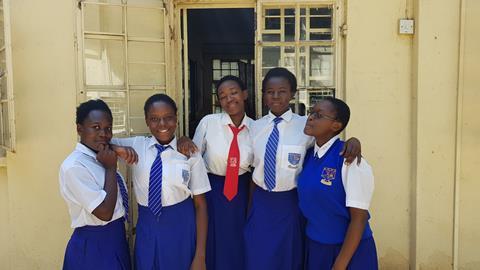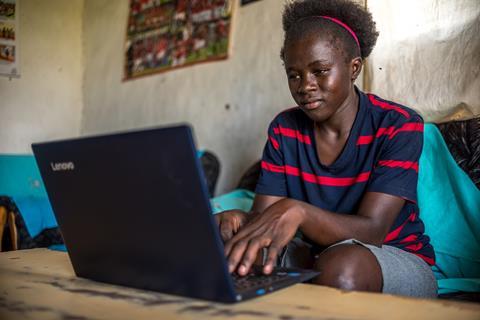Advertisement feature
You’re home for the holidays from boarding school, as there is no school in your rural community in Kenya. You’re excited to see your family but also filled with dread. It’s circumcision season, and you are 13. You listen carefully to the conversations at home, wondering when it’ll happen, hoping you can run away into the night before the elderly woman with the knife comes.
At age 13, a girl becomes a woman by undergoing female genital mutilation (FGM) as a rite of passage in your tribe. It makes you eligible for marriage. You don’t want to marry; you’re young and want to stay in school. But your parents have other plans.
This is the fear of many girls living in rural communities
Although illegal, one-quarter of women have undergone FGM in Kenya. Globally, more than 200 million girls and women have undergone FGM. Besides the emotional and psychological impact of the act, it poses serious health risks, including infection, long-term urinary issues, an increased risk of complications in childbirth, and, in some cases, it can lead to death. It also makes girls less likely to finish school and more likely to marry in their adolescence.
Synthia, a 17-year-old from a small Kenyan village, remembers how it changed one of her friends. “She was a very friendly and bubbly girl that everyone liked,” says Synthia. “After she was cut, she never came back to school. She was among the smartest girls I knew with a great future ahead of her.”
You might not think Synthia — the daughter of parents who had no access to education themselves — could do much, if anything, to stop this deeply ingrained cultural practice. But don’t tell Synthia or her friends that!
A winning app to bring about change

Together, five bright young girls, known as “The Restorers”, developed an app that allows girls in a crisis to alert authorities by clicking a distress button on their mobile phone. The app also provides girls who have undergone FGM with resources, including directions to the closest resource centre. The Restorers were selected as finalists in the 2017 Technovation Challenge, a global competition sponsored by Google, Verizon and the UN that encourages girls to use technology to solve problems in their communities.
Synthia and her friends were the only team invited from Africa to the Google headquarters in California to compete with other teams from around the world. “We were very excited,” says Synthia. “We were not only representing our country Kenya, but the entire continent. FGM is still a big problem affecting girls worldwide, and it is a problem we want to solve.” The team won second place — and $10,000 USD to develop the app for use in their community.
But things could’ve been so different
Synthia is the eldest of 11 children in her family. Her father works as a subsistence farmer, and her mother sells fish caught in Lake Victoria. Combined, they make about £1.20 a day to provide for 13 people. It’s not enough. Thanks to child sponsorship, Synthia could attend school and a Compassion project, where she also learnt how to use computers.

“I fell in love with technology. I’m indebted to the Compassion project for allowing me to find my passion. I used to love to play video games and draw things on the computer. Who would have thought that years on I’d be developing code?” Synthia is now in her fourth year at university, studying for a BSc in Mathematics and Computer Science. She’s also an intern at a software development company in Nairobi. “Through the love and care of the teachers [at the Compassion project] and the prayers of my sponsor, I have the opportunity to excel in life,” says Synthia.
The ripple effect persists. About 600 girls have used the iCUT App, and 200 girls have been rescued from FGM as a direct result. This was achieved through partnerships and outreach activities, where community champions, women’s groups, and local police forces were commissioned to facilitate rescue operations. They also partnered with a rescue centre to ensure the girls were looked after and stayed in school after the rescue. The girls and their fellow champions visit local girls’ high schools annually to further facilitate anti-FGM training. Synthia and her friends are a testament to the fact that, when given opportunities to thrive, young women make an immeasurable change in the lives of others.
How do you tackle a problem like poverty? Begin with a child. Sponsor today.


























